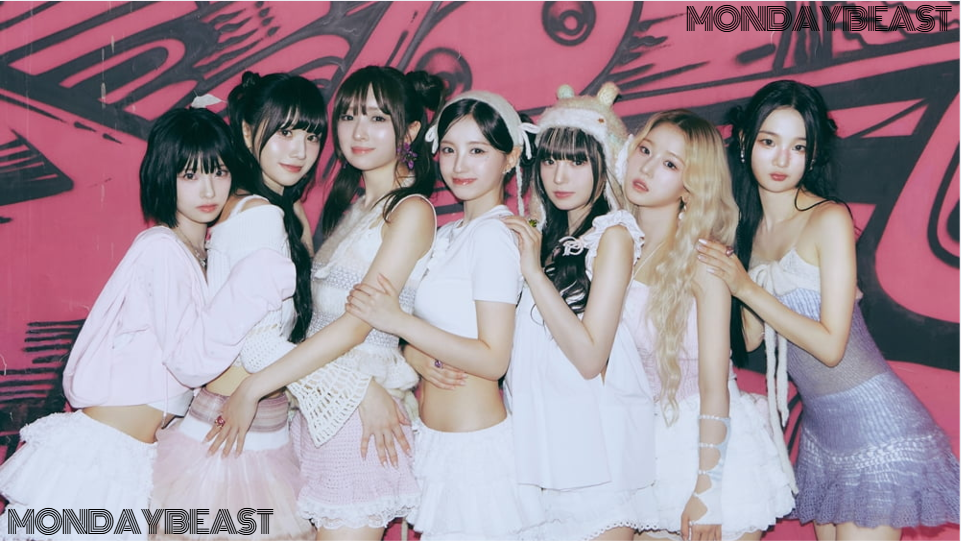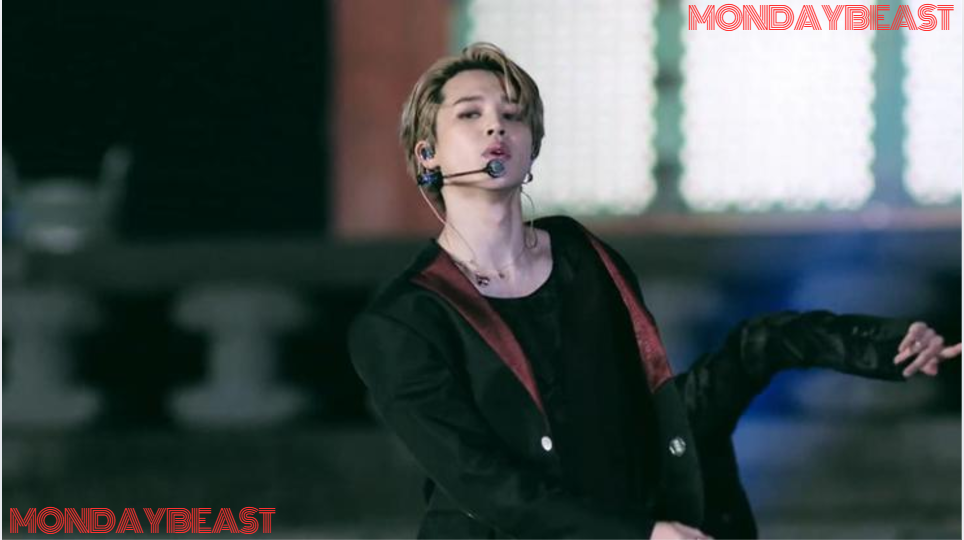Also read BTS’ Jimin Clinches 2024 MAMA Fans’ Choice Award – A Historical Night!
Background on the Allegations
A shocking revelation has emerged from the South Korean entertainment scene. The girl group Maydin is at the center of serious allegations against their CEO. A member named A claims she endured sexual harassment during an interaction with him. This situation escalated from a seemingly innocent conversation to a deeply troubling encounter.
On the JTBC show ‘Case Chief’, details were revealed about this incident. Allegations suggest that the CEO made inappropriate advances during private meetings. In a recorded conversation, A recounted his persistence, saying, “If you grant your wish, will you grant mine?” The abuse of power in this instance draws attention to the darker side of the entertainment industry.
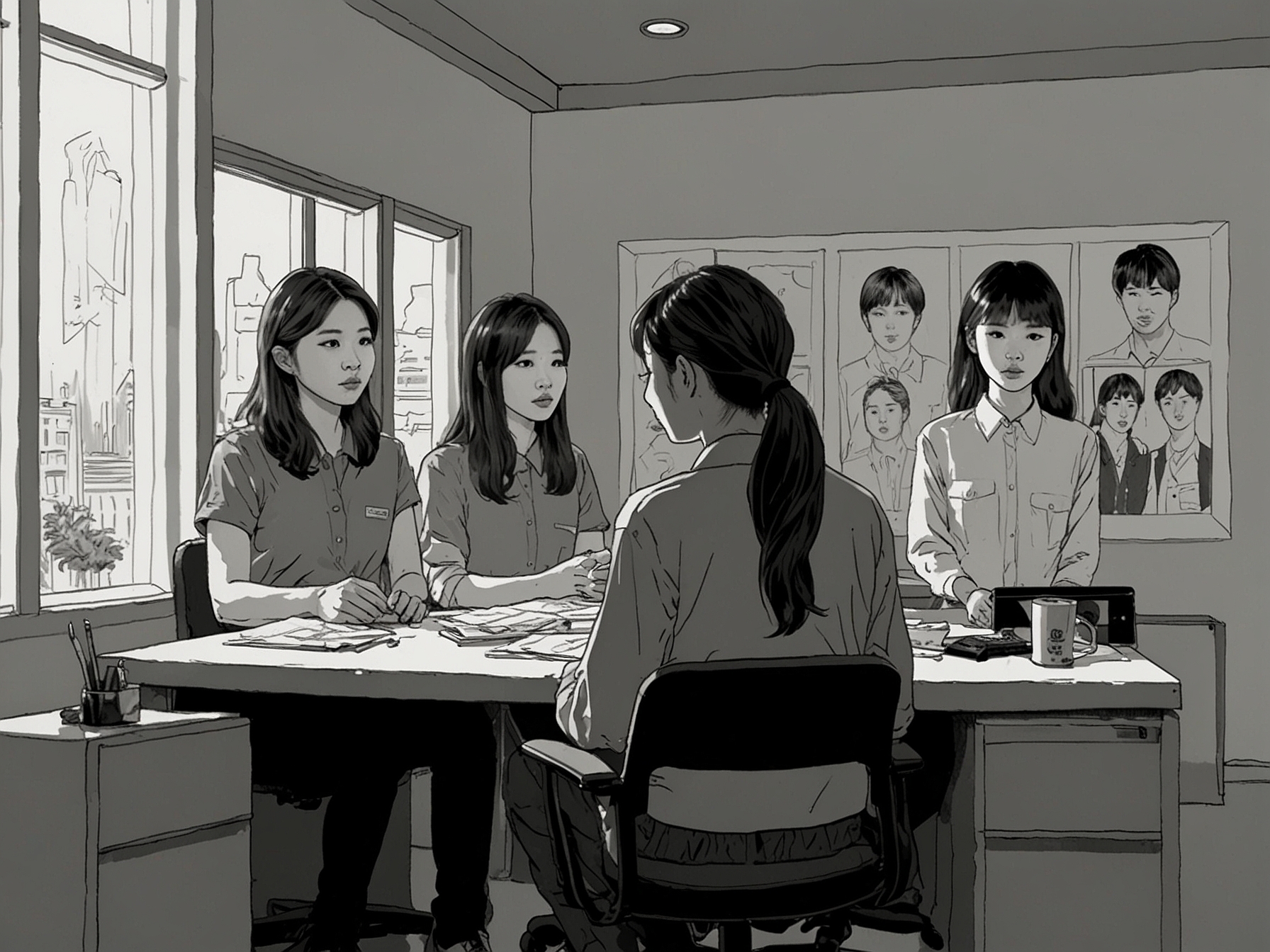
The impact of these accusations is profound. For many fans, it raises urgent questions about the safety of idols within their agencies. The balance of power tilts alarmingly when a CEO exploits their position. This shocking story not only concerns Maydin but also highlights issues across the industry as a whole.
The Denial from 143 Entertainment
In response to A’s allegations, Maydin’s agency, 143 Entertainment, issued a firm denial. They insisted that no sexual harassment occurred, stating, “There was no sexual contact through force between the member and the CEO.” Such rebuttals can sometimes serve to diminish the allegations in the eyes of the public. It raises the question: how often do we see power dynamics lead to silence in accusations?
The agency insisted that claims regarding the hotel were misrepresented. They suggested that the reported conversations came from “other people” and not from the member herself. This is a classic move seen in many high-profile cases, creating doubt over the credibility of the accuser. Some in the industry might argue that the perceived divide between management and idols feeds a culture of silence.
Examining the Broader Implications
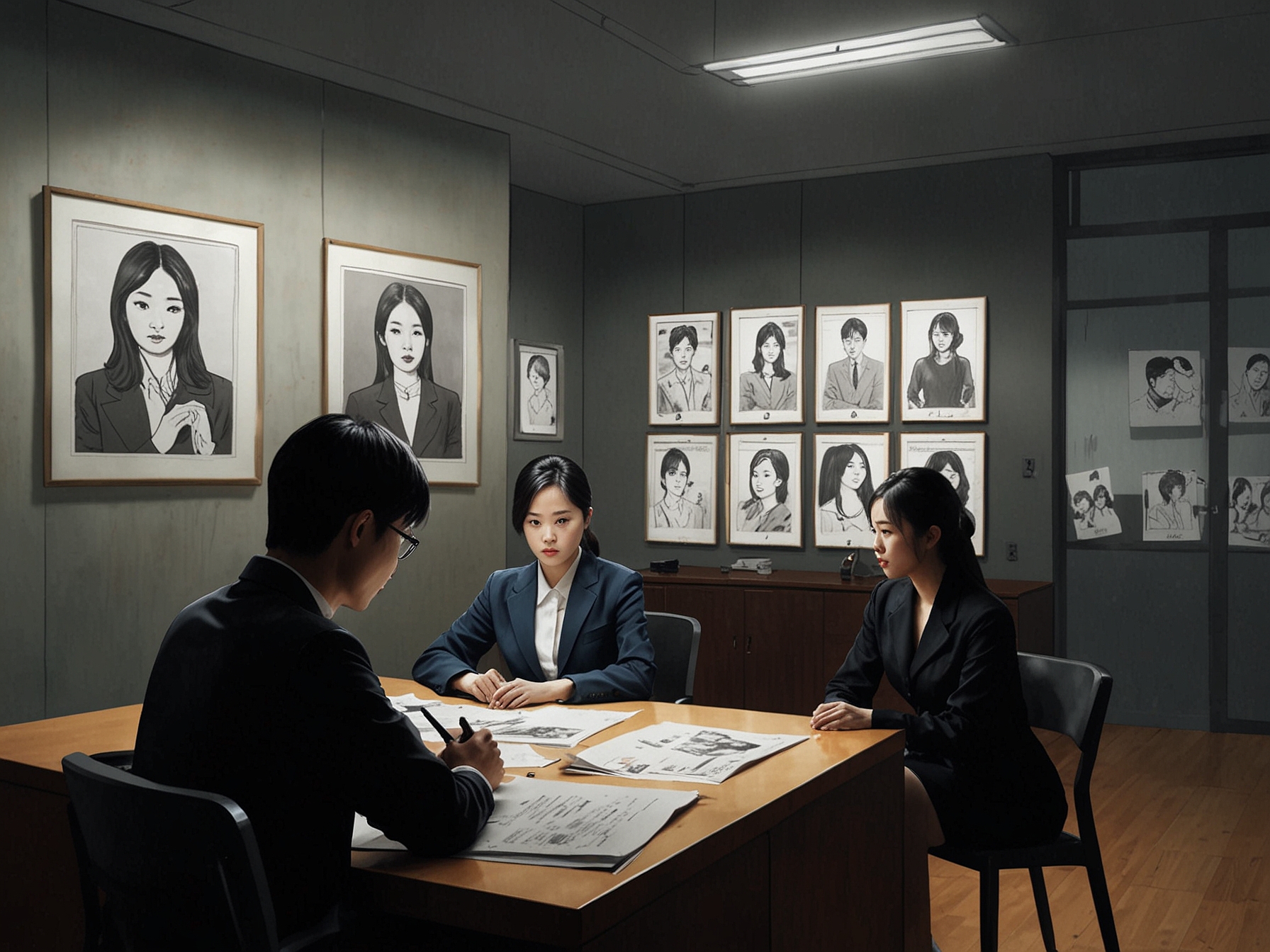
What does this scandal say about the entertainment industry? The allegations of sexual harassment are not isolated incidents. They reflect patterns of behavior embedded within complex power structures. Each accusation is a thread in the broader tapestry of troubling experiences faced by many idols. There’s a deep-seated reluctance to speak out, fearing backlash or career jeopardy.
Moreover, public scrutiny can be harsh. When allegations surface, fans and the media often take sides, complicating the situation for victims. The stigma attached to speaking out can be daunting. A’s experience reminds us of countless others who have struggled for recognition and justice.
The Conversation Beyond Maydin
As this story unfolds, it is crucial for the entertainment industry to have transparent conversations about consent, boundaries, and power. The plight of idols needs to be a focal point of reform. How can changes be enacted to protect young artists? What measures can agencies implement to ensure a safe working environment?
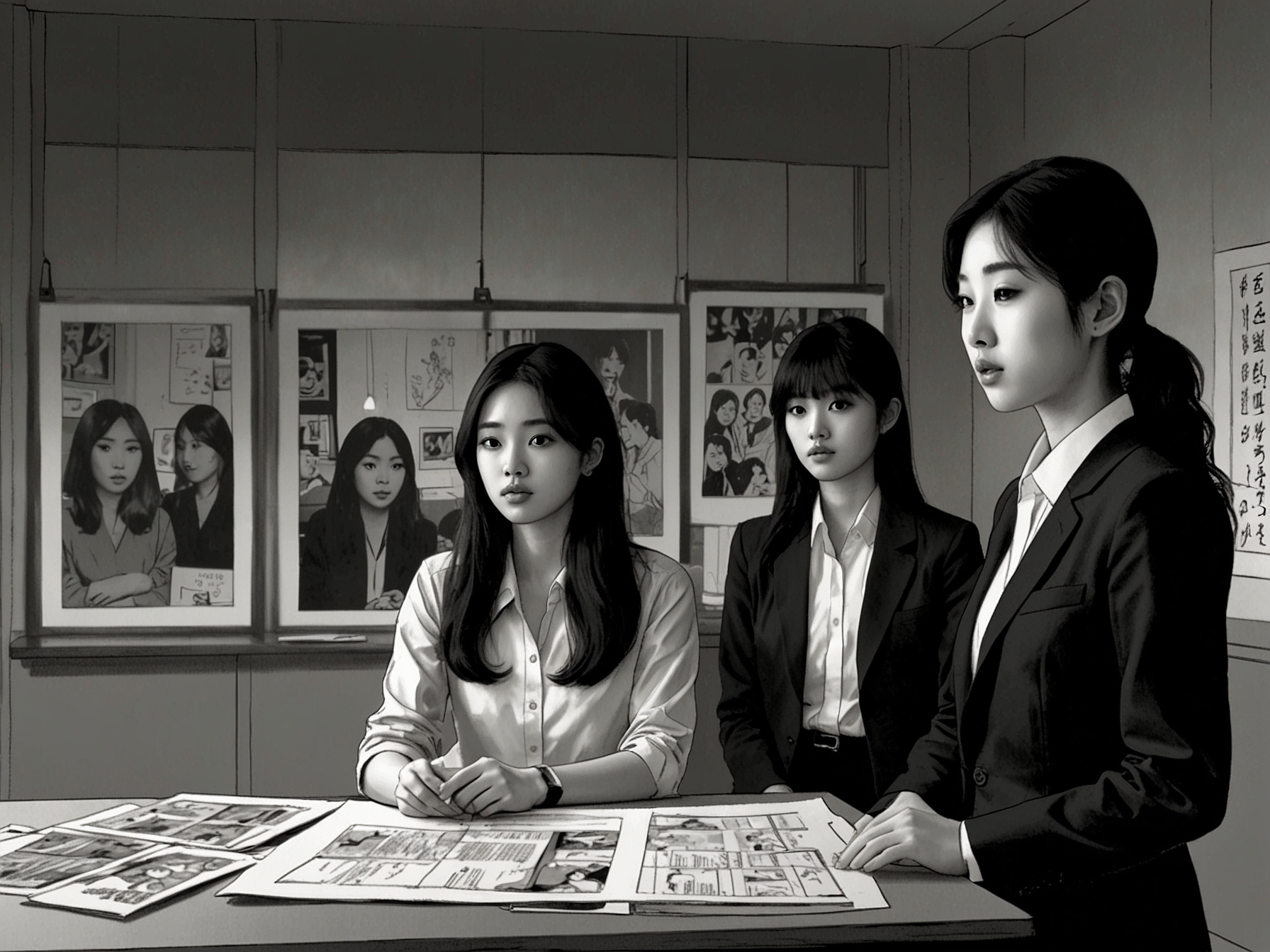
It becomes more than just a story about one woman and her experiences. It reflects a growing movement toward accountability. The public’s awareness must shift toward supporting anyone who bravely steps forward. The layers of complexity in this case reveal a culture begging for change. And change, as we know, starts with awareness and conversation. Only time will tell how this may shape the future of idol culture in South Korea.

